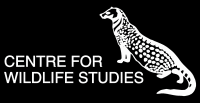About
-
Headquarters
Bangalore, Karnataka
-
Since
1984
The Centre for Wildlife Studies(CWS) works to conserve nature and wildlife through conservation efforts, education on the importance of the environmen Read moret, policy interventions to aid conservation and takes up initiatives to help communities living within protected forests. It takes up focused research into tigers and now has expanded its space to include leopards, wild dogs, sloth bears and many other predatory species. It collects data through field-based research, radio telemetry, population modelling and estimation. It also researches into life thriving on land developed for agroforestry like coffee, rubber and areca plantations which contain a variety of rich birds, mammals and amphibians. It looks at developmental pressures created by human construction while advocating for the connectivity of wild habitats across India advising national, state-level policy and decision makers being part of a high-level group. Ongoing field research is being conducted by the Centre to understand the views on nature-based tourism analysing tourism trends, visitor management practices and policies across reserved forests in India. The main focus is to balance the joy of seeing nature and also not disturb nature and wildlife. CWS also works to understand how diseases affect wildlife and their impact on livestock and humans who come into contact frequently with wildlife due to living in the forest fringe areas or within the forest reserves. The team and founders of CWS have published many articles talking about the different aspects of nature conservation efforts and are present on its website for public reading. CWS also offers doctoral programmes, Masters programmes and for people who are interested to study abroad. Partnering with Manipal University and the National Centre for Biological Sciences (NCBS), it offers PhD in Wildlife Ecology and Conservation and a two-year Masters Degree Programme in Wildlife Biology And Conservation respectively.
Issue
The degradation of nature and wildlife is being felt due to rampant development and expansion of human settlements. Wildlife is used as a tool to gain income and settlements are reaching the forests leading to human-wildlife conflicts.
Action
CWS acts to conserve forests and protect wildlife and humans also from coming into contact with each other. It works in the spaces of wildlife research, conservation, policy, and education.
Cause Area
Programs
-
Wild Seve Programme
Wild Seve is a national award winning conservation initiative which provides assistance to people affected by human-wildlife conflicts in Karnataka.
This effort is being carried out around the national parks of Bandipur and Nagarahole in Karnataka. Volunteers and staff of CWS can be contacted by local farmers in case of a conflict situation and the staff after reaching the site document the case and help to file compensation claims with the forest office in case of any loss or injury leading to increased co-existence between wildlife and people.
-
Wild Surakshe Programme
StateThis initiative focusses on reducing the cases of diseases that are transmitted from wildlife to humans and livestock.
It empowers people to safe guard themselves from wildlife encounters and if they accidentally come to face an animal, ways to administer first aid. CWS also arranges for treatment with appropriate collaborations with medical service providers.
CWS aims to create a network of immediate response agencies partnering with local Government bodies like rural development, forest, education and primary healthcare centres.
-
Wild Shale Programme
StateAims to create curiosity and interest in children, of people living in and around the reserved forest areas and in the conservation of nature.
It wants to foster these children into future protectors of the environment by providing relevant information and education about local wildlife, conservation issues and safety and co-existence with wildlife.
Leadership Team
Demographics & Structure
-
No. of Employees
100+
M&E
-
Internal, External Assessors
No
Policies
-
Ethics and Transparency Policies
No
-
Formal CEO Oversight & Compensation Policy
No
Political & Religious Declarations
-
On Affiliation if any
No
-
On Deployment Bias if any
No
Registration Details
-
PAN Card
AAATC0511
-
Registration ID
656 of Book IV/2003-04/Karnataka
-
VO ID / Darpan ID
KA/2016/0105368
-
12A
Trust/718/10A/Vol AI/372 dated 29.08.2008
-
80G
DIT(B)/80G(R)/111/AAATC0511E/X-425/2011-12
-
FCRA
94590106
-
CSR Registration Number
Not Available
Location
-
Headquarters
37/5, Yellappa Chetty Layout, Ulsoor Road (Off Halasuru Road), Bangalore, 560042
Directions
Other Details
-
Type & Sub Type
Non-profit
Trust
Website
Financial Details
-
2020-21
IncomeRs.27,268,169ExpensesRs.27,268,169Admin ExpensesRs.1,729,655Program ExpensesRs.25,538,514Tip: Click on any value above to exclude it.



